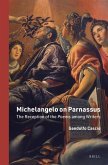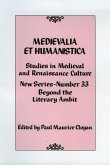Re-evaluating the dialogue's place in the literary landscape of the Italian and French Renaissance, Speaking of Love presents the love dialogue at the intersection of a revival of the form and the period's philosophies of love and desire. Between 1540 and 1580, authors such as Speroni, Tullia d'Aragona, the Venetian poligrafi, Tyard, Le Caron, Pasquier, Taillemont, Marguerite de Navarre, and Louise Labé, feature interlocutors not only deliberating on love but imitating the experience of love in their dynamics of speaking. These love dialogues allow early modern ideologies and discourses of love to be imitated by the reader and rival lyric poetry in conveying amorous experience, validating dialogue as an authentic literary form rather than a tool of philosophical thinking.
''In this stimulating volume, Leushuis argues that Italian and French Renaissance literature saw the emergence of a peculiar conception of love dialogue. The author stresses the importance of digressions, obliqueness, disorder, even contradictions in this genre. In his opinion, these features mirror the plurality of the perspectives on love. What is more, they have mimetic value with regard to the discourse, behavior, and experience of lovers in real life, which are inherently meandering, unregulated, and contradictory. Such dialogues feature a praxis of 'speaking of love', in opposition to other dialogues that illustrate an orderly and systematic theory of love''. - Maiko Favaro, in: Germanisch-Romanische Monatsschrift 69.2 (2019)








